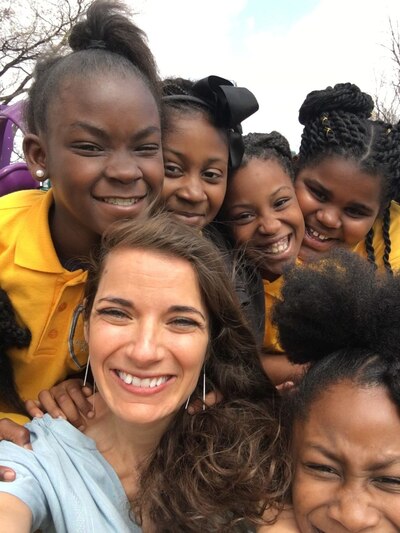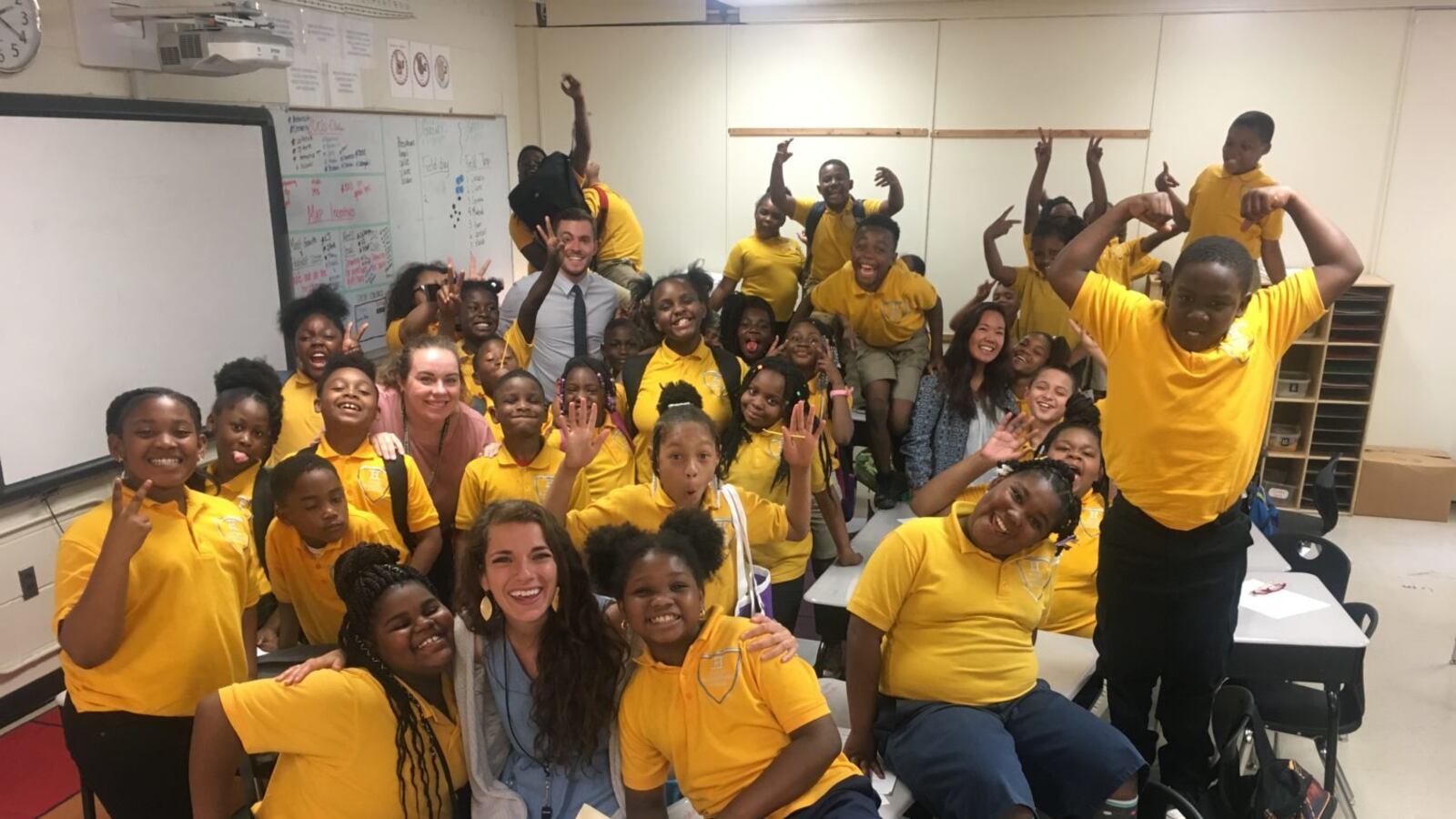Some 20 years ago, Ginny Terrell’s third grade math teacher called her “stupid.” Now, Terrell laughs as she names her current position: a third grade math teacher.
“I was that kid in school that everybody was like, ‘What’s wrong with her?’” said Terrell who has been teaching at the local charter Aspire Hanley for four years and will teach at Aspire East in the fall.
Terrell was held back in kindergarten and struggled from there on. Luckily, she had teachers that stayed with her after hours to give her the support that she didn’t have at home. At that moment, she knew she wanted to be like them.

As middle and high school loomed, Terrell told herself she had two options: sink or swim. So she worked hard — often twice as hard as her classmates, she said — and eventually enrolled in the University of North Texas in her home state.
During college, which took her seven years to complete, Terrell spent time in New Orleans doing service projects, where she often interacted with local youth. Then, she interned at a Title I school, where she noticed that her fellow teachers were unprepared to handle disciplinary issues, and that the “kids weren’t getting what they needed.” (Title I schools, eligible for certain federal funding grants, enroll a high percentage of students from low-income families.)
“I felt like it was the blind leading the blind,” she said.
That work, Terrell said, prepared her for a career in urban education. After graduation, she signed up for Memphis Teacher Residency, an alternative teacher licensing program that places college graduates at urban schools.
“They endure more than I could ever dream of,” she said of her students, 88 percent of whom qualify for free or reduced-priced lunch. “… I can relate a lot to their home lives, their struggling in school and their not wanting to even be there.”
In this installment of How I Teach, Chalkbeat spoke with Terrell about why her decision to teach in urban schools was such a personal one. (This Q&A has been lightly edited and condensed for clarity.)
How do you get to know your students?
I get to know my students by really utilizing my first month of school. I really try to use every moment and every conversation to truly understand each of my students. I give them a little survey that is like a Facebook page on paper the second day they are at school. I send home a survey [for parents to fill out] about his or her child and that helps me know even more. I spend time talking with them at lunch, recess, and moments during instruction. I try to observe how they respond to my questions, how they respond to hard situations, how they respond to their peers and how they handle learning. I use morning meeting time to know each of my students by playing getting-to-know-you games and simply letting them do a show and tell.
Tell us about a favorite lesson to teach. Where did the idea come from?
For a lesson on perimeter and area, our class took a little trip to the playground.They counted blocks and other items around the playground and added them up to get the perimeter. My students tried teaching each other and asked questions during the lesson on the playground. They told me at the end of the year that was their favorite lesson because they could understand it. This idea came from reading a book “Becoming the Math Teacher You Wished You’d Had: Ideas and Strategies from Vibrant Classrooms,” by Tracy Johnston Zager. In the book it discusses the importance of including real life examples students can relate to in math and gave multiple examples in other classrooms. I thought that we should use the playground, which will stick with them because they use it every day and they love it!
What object would you be helpless without during the school day?
An object I would be helpless without during the school day would be our clip system [moved up and down to track student behavior]! They could see where they were at behaviorally and how they can improve at every moment of the day. I could not live without a behavior system in my classroom. It is the basis of giving students structure and consistency. If you do not have a behavior system that is a well-oiled machine, you will not be able to get to your instruction and plan the engaging lessons. The culture you set, from day one, will drive your classroom.
What’s something happening in the community that affects what goes on inside your class?
Something that is happening in the community that affects my classroom is the crime rate. I have heard students coming in telling me they could not sleep because of the gunshots or abuse in their homes. Some of the crime happened on our [school] property between parents. This [hurts] student’s ability to focus, and [discourages] parents from coming to the school or even being involved. Students will start following what they see in their community, [so it] is hard for them to learn how to treat their peers or even teachers in a different way.
Tell us about a memorable time — good or bad — when contact with a student’s family changed your perspective or approach.
One of my students had a hard time functioning in my classroom. She could not really get along with peers and was sad a lot of the time. I reached out to the mom and discussed what was going on with her. Mom shared with me her life story and what has been going on at home. She wasn’t at all playing a victim or making excuses for her child. She instead asked me for help and support. We prayed for each other and I built a beautiful relationship with that family. It is so easy in the heat of the moment to snap or get angry with a student if he or she is not following directions. It showed me to seek to understand first, then take action. I could have done a lot more damage to the student in the classroom if I did not seek to understand. From that point on, I always make sure I take a step back and understand the situation instead of snap judgements. It taught how I can love each student in the way that will benefit them as future contributors to our society.
What part of your job is most difficult?
The most difficult part of my job would be not having enough parent involvement. There will be some parents that were very involved and supported the best they can in and outside the classroom. However, it has been difficult for some parents due to working three different jobs, not having enough resources or just not having the mental capacity to support. I cherish their thoughts and their support, so not having that [makes it] difficult to hold my students accountable outside the classroom.
What was your biggest misconception that you initially brought to teaching?
I thought I had to dumb down my lessons so other students can learn. It is actually the opposite; having high expectations, students can reach the bar you set. I think I viewed my students as “low” academically, but they are not. Maybe they’re behind, but never low. They are so smart and can do anything you ask. It might take some time and you have to go back, but they are able and more than ready.
What are you reading for enjoyment?
“Nothing to Prove” by Jennie Allen and “Hope Heals” by Katherine Wolf and Jay Wolf
What’s the best advice you’ve received about teaching?
If you think you have arrived in teaching, you need to retire.


